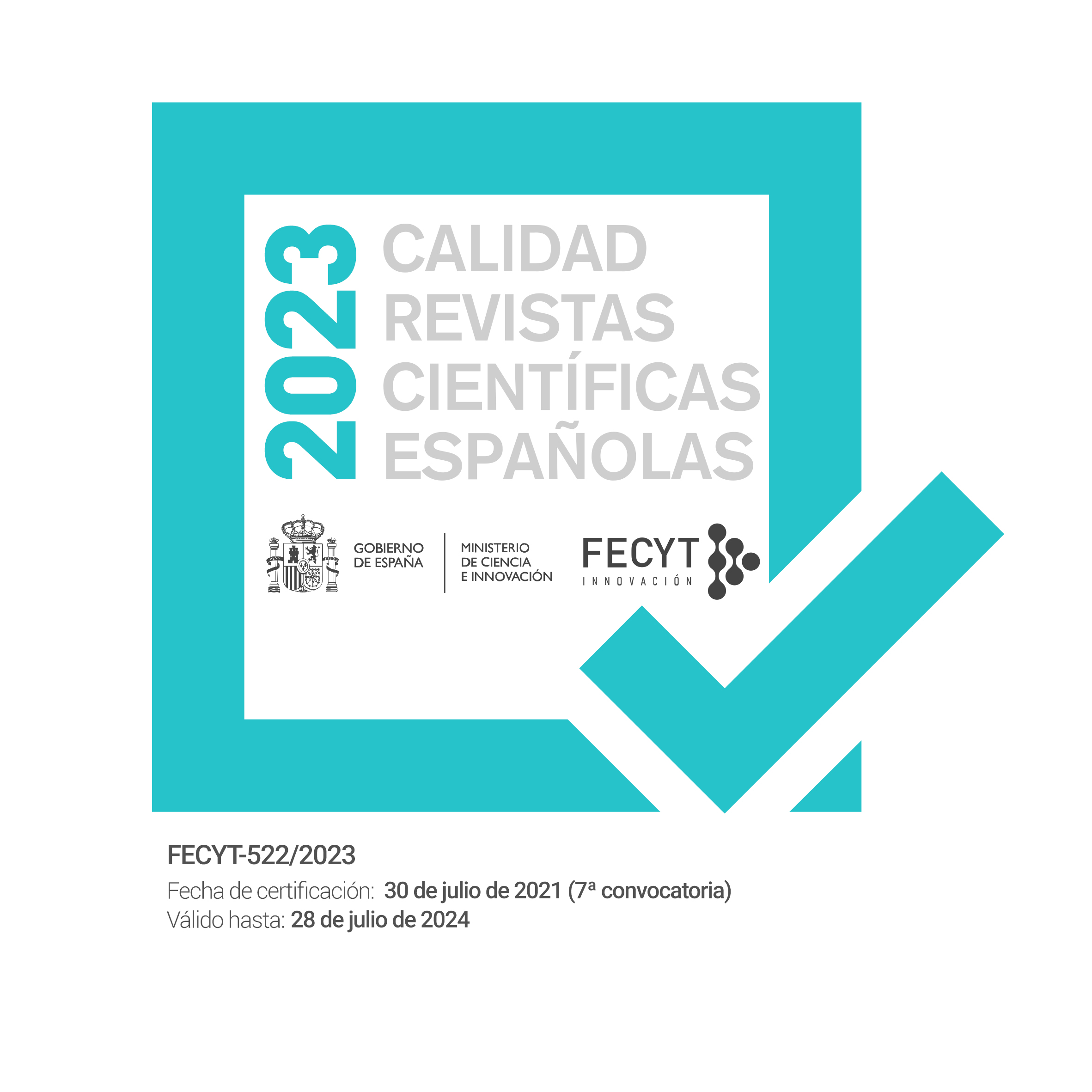Isomorphism, polymorphism, or hybridization? South-European educational inequalities at check
Resumen
While there is a robust consensus on the existence of a South European welfare regime (Ferrera, 1996) and several researches have been consolidating that perspective while underlying national specificities (Rhodes, 1996), researches on cross-country comparisons of educational systems and performances have not been focussed enough to provide a solid framework to identify a common or different educational patterning among countries such as Greece, Italy, Malta, Portugal and Spain (Madeira, 2018; Nóvoa, 2018; Palomba, Cappa, 2018). In this paper, we aim at understanding whether a South-European educational space exist in relation to structural internal features and educational inequalities and whether single national education systems tend toward isomorphism, polymorphism or hybridization.
Palabras clave
Texto completo:
PDF (English)Referencias
Adamson, F., Astrand, B., Darling-Hammond, L. (2016). Global education reform: How privatization and public investment influence education outcomes, London: Routledge.
Argyropoulou, E. (2015), «The Role of the State in the Latin Countries: Similarities and Differences. Why and How Educational Systems’ Organization Can Be Affected», Journal of Educational Cultural and Psychological Studies, 11, 319–331.
Altrichter, H., Heinrich, M., Soukup-Altrichter, K. (2014). «School decentralization as a process of differentiation, hierarchization and selection», Journal of Education Policy, 29(5), 675-699.
Ball, S.J. Youdell, D. (2008). Hidden Privatisation in Education. Brussels: Education International.
Benadusi, L. Giancola, O. (2014), «Secondary school systems: “comprehensive” versus “selective”. A comparison in terms of equity», Scuola democratica, 2, 461-482.
Benito, R., Alegre, M.A. and Gonzàlez-Balletbò, I. (2014), «School Segregation and Its Effects on Educational Equality and Efficiency in 16 OECD Comprehensive School Systems», Comparative Education Review, 58(1), 104-34.
Bonoli, G., Natali, D. (2012). The politics of the new welfare state. Oxford, Usa: Oxford University Press.
Busemeyer, M. R. (2014). Skills and inequality: Partisan politics and the political economy of education reforms in western welfare states. Cambridge: Cambridge University Press.
Christ, C., Dobbins, M. (2016). «Increasing school autonomy in Western Europe: a comparative analysis of its causes and forms», European Societies, 18(4), 359-388.
da Cruz Martins, S., Albuquerque, A., Capucha, L. (2019), «School autonomy and administration. Configurations and processes in Europe», in S. da Cruz Martins, L. Capucha, J. Sebastião, (eds), School Autonomy, Organization and Performance in Europe. A comparative analysis for the period from 2000 to 2015, CIES, ISCTE, pp. 7-22
Demeuse, M., Frandji, D., Greger, D., Rochex, J. Y. (2012). Educational policies and inequalities in Europe, London: Palgrave Macmillan.
DiMaggio, P. J., Powell, W. W. (1983). «The iron cage revisited: institutional isomorphism and collective rationality in organizational fields», American Sociological Review, 48(2), 147-160.
Esping-Andersen, G., Gallie, D., Hemerijck, A., Myles, J. (2002). Why we need a new welfare state, Oxford, USA: Oxford University Press.
Eurydice, (2020). Compulsory Education in Europe – 2020/21. Eurydice Facts and Figures. Luxembourg: Publications Office of the European Union.
Eurydice, (2019), The Structure of the European Education Systems 2018/19, Eurydice Facts and Figures Luxembourg: Publications Office of the European Union.
Eurydice, (2015). Assuring Quality in Education: Policies and Approaches to School Evaluation in Europe. Luxembourg: Publications Office of the European Union.
Ferrera, M. (1996). «The ‘Southern model’ of welfare in social Europe», Journal of European social policy, 6(1), 17-37.
Forsey, M., Davies, S., Walford, G. (2008, May). The globalisation of school choice? Oxford: Symposium Books.
Giancola, O. (2009), Performance e diseguaglianze nei sistemi educativi europei, Naples: ScriptaWeb.
Giancola, O., Salmieri, L. (2020). «Family Background, School-Track and Macro-Area: The Complex Chains of Education Inequalities in Italy», DISSE Working Papers, 4, 1-22
Giancola, O., Salmieri, L. (2022) «Cross-National Achievement Surveys and Educational Monitoring in Italy», in Volante L., Schnepf S. V., Klinger D. (eds.) Cross-National Achievement Surveys for Monitoring Educational Outcomes. Luxembourg: Office of the European Union, forthcoming.
GERESE, (2005), L'équité des systèmes éducatifs européens. Un ensemble d’indicateurs, Groupe Européen de Recherche sur l’Équité des Systèmes Éducatifs, Servicede pédagogie théorique et expérimentale, Université de Liège.
Guimaraes, P., Villeguas, E.-L., Mayo, P. (2018), «Southern-European Signposts for Critical Popular Adult Education, Italy, Portugal and Spain», Compare, 48, 1, 56-74.
Hanushek, E. A., Link, S., Woessmann, L. (2013). «Does school autonomy make sense everywhere? Panel estimates from PISA», Journal of Development Economics, 104, 212-232.
Hanushek, E. A., Woessmann, L. (2014). «Institutional structures of the education system and student achievement: A review of cross-country economic research», in R. Strietholt, W. Bos, J. E. Gustafsson and M. Rosén, (eds.), Educational policy evaluation through international comparative assessments, pp. 145-176
Jeong, D. W., Luschei, T. F. (2018). «Are teachers losing control of the classroom? Global changes in school governance and teacher responsibilities, 2000–2015», International Journal of Educational Development, 62, 289-301.
Korpi, W. (2000). «Faces of inequality: Gender, class, and patterns of inequalities in different types of welfare states». Social Politics: international studies in gender, state & society, 7(2), 127-191.
Madeira, A. I. (2018), «The structuration of comparative discourse and the imagination of knowledge spaces: Portugal, the ‘South of Europe’, and the ‘South below’», Comparative Education, 54, 4, 459-489
Martins, L., Veiga, P. (2010). «Do inequalities in parents’ education play an important role in PISA students’ mathematics achievement test score disparities?», Economics of Education Review, 29(6), 1016-1033.
Maslowski, R., J. Scheerens, H. Luyten, (2007), «The effect of school autonomy and school internal decentralization on students’ reading literacy», School Effectiveness and School Improvement, 18 (3), 303-334.
Mifsud, D. (2021), «Social Justice and Education in the Maltese State School System Some Political and Practical Issues», in D. Mifsud, P. Landri, (eds.) Enacting and Conceptualizing Educational Leadership within the Mediterranean Region, Leiden: Brill, pp. 11-36.
Mifsud, D., Landri, P. (2021), «Problematizing the Dominant Discourses and Policies of Educational Leadership within the Mediterranean Basin», in D. Mifsud, P. Landri, (eds.) Enacting and Conceptualizing Educational Leadership within the Mediterranean Region, Leiden: Brill, pp. 1-10.
Nóvoa, A. (2018), «Comparing Southern Europe: the difference, the public, and the common, Comparative Education, 54, 4, 548-561.
Nóvoa, A., Yariv-Marshal, T. (2003), «Comparative Research in Education: A Mode of Governance or a Historical Journey?», Comparative Education, 39, 4, 423–438.
OECD, (2012), Equity and Quality in Education: Supporting Disadvantaged Students and Schools, Paris: OECD Publishing.
Palomba, D., Cappa, C. (2018), «Comparative studies in education in Southern Europe», Comparative Education, 54(4), 435-439.
Pensiero, N., Giancola, O., Barone, C. (2019). «Socioeconomic inequality and student outcomes in Italy». in L. Volante, S.V. Schnepf, J. Jerrim, D.A. Klinger, (eds.), Socioeconomic Inequality and Student Outcomes, Singapore: Springer, pp. 81-94.
Rhodes, M. (1996). «Southern European welfare states: identity, problems and prospects for reform», South European Society and Politics, 1(3), 1-22.
Rowe, E. E., Lubienski, C. (2017). «Shopping for schools or shopping for peers: Public schools and catchment area segregation», Journal of Education Policy, 32(3), 340-356.
Salmieri, L., Giancola, O. (2021). «La pobreza educativa en España en una comparación europea», Revista Española de Sociología, 30(2), a48.
Taylor-Gooby, P. (2008). «The new welfare state settlement in Europe», European societies, 10(1), 3-24.
Urquiola, M. (2016). «Competition among schools: Traditional public and private schools», in E. A. Hanushek, S. Machin, L. Woessmann, (eds.), Handbook of the Economics of Education. Volume 5, Elsevier, pp. 209-237.
Volante, L., Schnepf, S.V., Jerrim, J., Klinger, D.A. (2019). Socioeconomic inequality and student outcomes: Cross-national trends, policies, and practices, Singapore: Springer.
Wermke, W., Salokangas, M. (2015), «Autonomy in education: theoretical and empirical approaches to a contested concept», Nordic Journal of Studies in Educational Policy, 2, 1-6.
Enlaces refback
- No hay ningún enlace refback.

Este obra está bajo una licencia de Creative Commons Reconocimiento-NoComercial-CompartirIgual 4.0 Internacional.
Revista de Sociología de la Educación - RASE
ISSN: 2605-1923 (anterior ISSN: 1988-7302)
raserevista@gmail.com

Las publicaciones de la RASE tienen Licencia Creative Commons Reconocimiento-NoComercial-CompartirIgual 4.0 Internacional.












